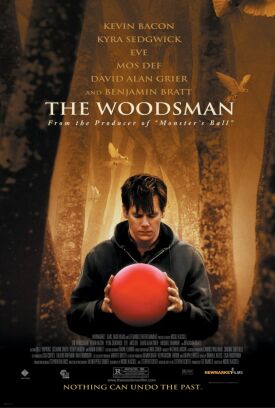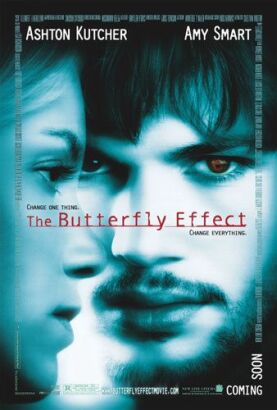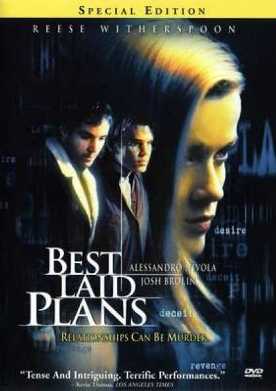With a Friend Like Harry. . . (Harry, Un Ami Qui Vous Veut du Bien)
The Franco-German director Dominik Moll’s new film is
called Harry, Un Ami Qui Vous Veut du Bien, which means, “Harry, a
friend who only wants the best for you.” For its American release it has
been given the slightly misleading English title of With A Friend Like Harry.
. ., but in other English-speaking countries it has been known as Harry,
He’s Here to Help. Both English titles suggest a rollicking comedy
rather more than the French title does, and there is no doubt of the comic
element in this exceedingly strange but most enjoyable little film. But its
comedy is–how shall we say?–complicated to say the least. Compared
by many overseas viewers to a Hitchcock product, it is rather, perhaps, what
Hitchcock might have become if he had lived and worked on into the post-modern
period.
Or, to put it another way, this is a Hitchcock movie that also sends up
Hitchcock. The sinister stranger, eponymous Harry (Sergi López), who
disrupts the life of an ordinary family is a very Hitchcockian character, and
yet his strangeness somehow seems more natural. He is a self-invented
character–in the way that people so often are self-consciously
self-invented these days–and not a Hitchcock- or even a Moll-invented one.
He delights in his own eccentricity, instead of taking it for granted, and yet
it never seems merely put on for show. There are also touches of Beckett and
touches of Pinter here and there, but what I like about the film is that
everything is firmly anchored in the realistic conventions of the cinema. These
help to accomplish here what film at its best does, which is to make
extraordinary people seem ordinary and ordinary people extraordinary.
The obviously extraordinary person is Harry. It is impossible to praise Mr
Lopez’s performance too highly. His entry into the life of a former
schoolmate, Michel (Laurent Lucas), his wife, Claire (Mathilde Seigner) and
their three small daughters, who represent the ordinary, comes with the
cataclysmic force of an earthquake, even though the social niceties are so
scrupulously observed that at first the family hardly notices the transformation
he is effecting. In fact, the real focus of interest in the film is those same
social niceties, the conventions of civilization which are stretched here to the
breaking point but which nevertheless have a double purpose in the film: they
make frightening and frankly incredible incident believable and they stand for
all the ordinariness in the lives of its heroes that has to be broken down and
swept away if anything extraordinary, good or bad, is to happen. In the end
something does happen, but we aren’t quite sure whether it is good or
bad.
The story begins on the French equivalent of an Interstate highway one hot
August afternoon. Michel and Claire are driving south to their holiday cottage
in the mountains. The car is hot, the two older girls are restive and
complaining and the baby is sick. They stop at a rest area and, as Michel is
splashing water on his face in the men’s room he is conscious of someone
staring at him. It is Harry. Being stared at by a stranger in the men’s
room is disconcerting, but Harry is smiling. He expects Michel to recognize him.
Michel does not. To jog his memory, Harry reminds him of the time when, during a
game of handball, the two of them collided and Harry lost a tooth. Michel still
doesn’t remember. “I often don’t recognize people,” he
explains apologetically.
Harry asks: “Do you still write?”
“What?” Soon we learn that Michel doesn’t recognize himself
either, at least not as a writer. When, more to be polite than anything else, he
acquiesces in Harry’s suggestion that they drive together to the cottage,
Harry astounds him by reciting from memory a poem he, Michel, once wrote for the
school magazine, “The Dagger in the Skin of the Night.” It is the
only poem he ever wrote, and the kind of thing he would be embarrassed to
acknowledge now, but for Harry’s enthusiasm. “I read it so often it
sank in,” the latter explains and turns to his rather voluptuous
girlfriend, Plum (Sophie Guillemin). “Plum likes it too,” he
says.
“Dick often recites it to me,” she confirms, explaining that she
likes to call Harry Dick. Harry/Dick goes on to recall Michel’s single
prose effort, also published in the school magazine: an unfinished science
fiction story called “The Flying Monkeys,” which he calls “one
of the most beautiful things I’ve ever read.” When he presses Michel by
asking “Why did you stop writing?” the latter doesn’t know
what to say.
“It was never a priority,” he ventures, as if he can’t
think of any better reason. We assume that he has just grown out of it, as most
adolescents dabbling in literary creation do. But Harry won’t allow us, or
Michel, this easy explanation. As often in French films, artistic creation
stands for a kind of human ideal, but in this case it becomes one against the
will, almost, of the creator and only because of the fierce advocacy of a man
who, as time goes on, seems more and more like one mentally deranged. Harry is
rich, and he likes to solve problems, and he soon sets out to clear away all the
obstacles to a return to his supposed literary vocation in Michel’s
ordinary family life–including, eventually, his family itself. Even more
strangely, Michel begins to find himself drawn into Harry’s
delusion–if it is a delusion–that he is a writer.
One of the questions raised obliquely by this amusing yet disturbing film is
that of how to make aesthetic judgments in the post-modern era, when Shakespeare
and Batman comics are treated on terms of equality. What makes Michel’s
putative literary oeuvre worth the trouble to him to produce it? The
answer, so far as Michel is concerned, is just one passionate reader. Even a
madman. Even a madman who’s no longer around to read his future output.
“We have to overreact,” says Harry at one point. “It’s the
only way to fulfilment.” I don’t think I agree with this way of
thinking. Not at all. But in the context of this wonderful film it makes the
kind of impression that “The Dagger in the Skin of the Night” made
on Harry.
Discover more from James Bowman
Subscribe to get the latest posts to your email.








